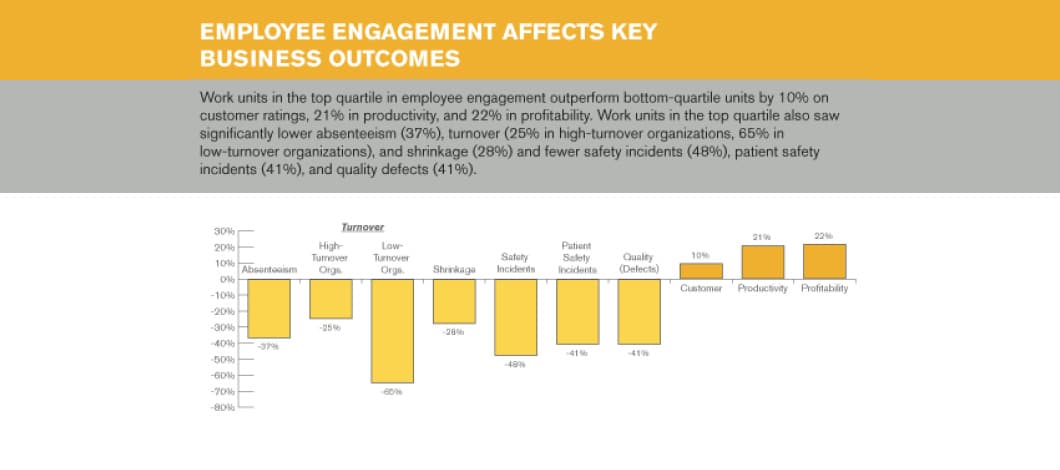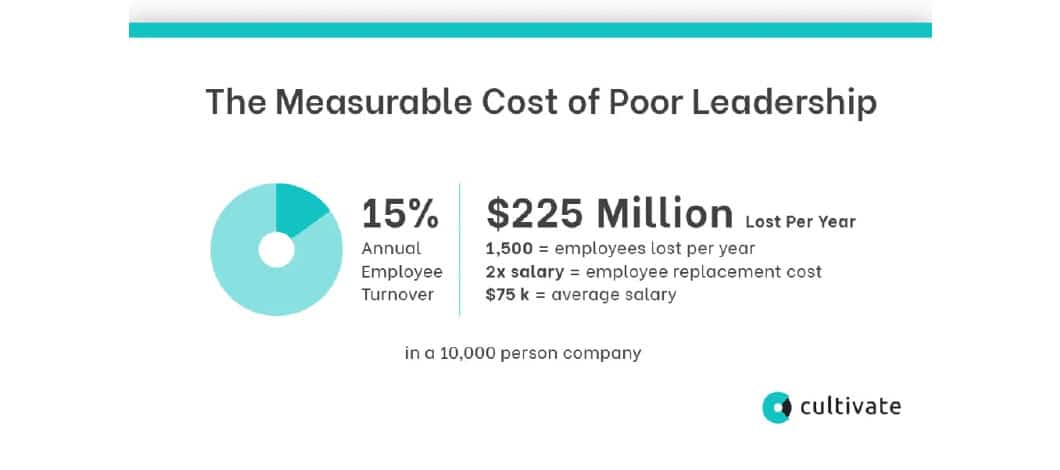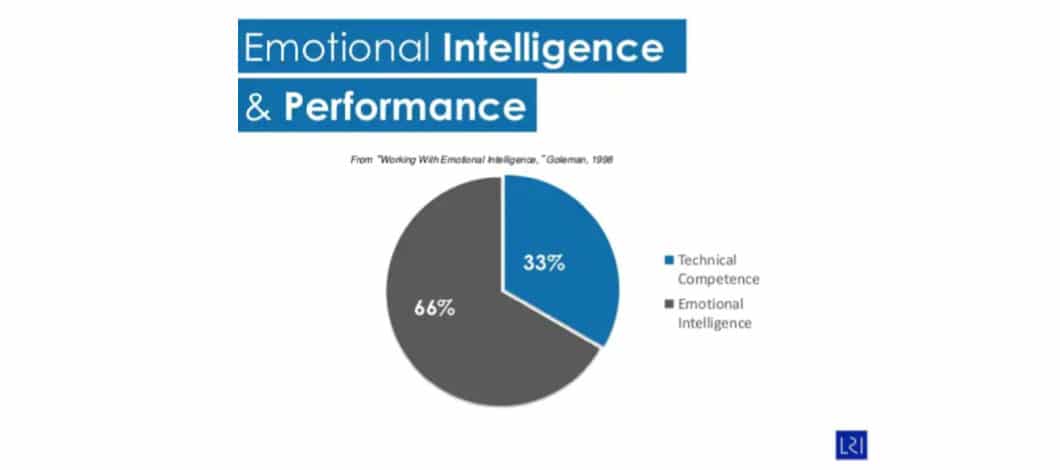You know the famous phrase: “People don’t quit companies, they quit bosses?” Turns out research backs it up. Common weaknesses in leaders can weigh on a company.
Leadership consulting firm DDI surveyed more than 1,000 workers and found 12% never considered leaving their job because of their direct manager. And 43% of respondents had already left a company because of their previous manager.

The study cited a “lack of soft skills” as the reason for so many workers’ unhappiness with their managers. We’ve dug deep to find the 13 common weaknesses that leaders struggle with most.
Here they are and how to fix them.
The 13 Most Common Weaknesses in Leaders
Unless you’re a cyborg, it’s likely you have at least a few of these common weaknesses in leaders. Chances are even better you’ve experienced one or two from a previous leader in your life.
- Lack of trust in employees.
- Micromanaging your employees.
- Getting stuck in familiar patterns.
- Making decisions based on wanting to be liked rather than business objectives.
- Not modeling the values you expect of your team.
- Not setting expectations.
- Not providing enough feedback.
- Inability to admit mistakes for fear of looking weak.
- Giving unrealistic deadlines.
- Valuing seniority over potential.
- Playing favorites.
- Taking all the credit.
- Not being empathetic to employee needs.
We also will cover the 4-step process to overcoming these leadership weaknesses.
The Real Cost of Leadership Problems to Companies
Companies with engaged employees are 22% more profitable, according to a meta-analysis study by Gallup of nearly 1.4 million employees and workplaces.

Besides positive changes to profitability and productivity, engaged companies also have much lower rates of problematic behaviors, such as absenteeism (-37%), safety incidents (-48%) and turnover (-25% to -65%).
You can’t create engaged, productive employees with bad leadership. You can’t attract great external hires either, thanks to websites such as Glassdoor that allow employees to anonymously rate their workplaces for all job-hunters to see.
But what does disengagement cost you? Let’s look at the hard numbers.
According to research by Mercer, the average annual turnover rate for U.S. companies is 22%, with 15% of that being employees voluntarily leaving. As we learned earlier from DDI, a combined 89% of all employees have either left jobs before solely because of their managers, or at least thought about it.
Using the 15% turnover figure as an example, we can see that voluntary turnover costs a 10,000-person company $225 million a year, according to calculations based on replacement costs done by Cultivate.

Even if we’re conservative and say 10% of voluntary turnover was due to poor leadership, that annual cost is still $150 million.
And sure, that’s for a 10,000-person company, but what about your company? For a company with 100 employees, that’s still costing you $2.25 million a year to replace employees lost due to leadership problems.
Often, the most effective way to bolster your profits isn’t to sell more, it’s to develop and grow great leaders within your organization.
The Top 5 Leadership Skills to Start Improving Today
1. Effective Communication
Great communication is more about listening than speaking. Whether it’s a pump-up speech to inspire your team to action toward a goal, or a standard performance evaluation, great leaders need to be able to communicate ideas efficiently.
Focus on your tone and word choice to build up confident communication skills. Don’t forget to ask follow-up or clarifying questions to let others know you’re really listening.
And don’t be stingy with praise. Make an effort to tell everyone on your team they’re doing well at something every week. The personal attention and recognition of their efforts goes a long way to keep employees engaged and motivated.
2. Accountability
“Do as I say and not as I do” isn’t going to fly very long in a leadership role. If there’s one thing that’s bound to send high performers looking for other jobs, it’s a culture of hypocrisy.
Check your ego at the door daily.
3. Conflict Resolution
This is a necessary skill for any leader to possess, as conflicts are bound to come up. These could be conflicts between members of your team, or between you and your boss, or even having to step in and help an angry customer.
The same principles of good communication apply here: Listen more than you speak and ask questions to get to the root of the issue. Always approach conflicts positively with a solutions-oriented mindset.
4. Having a Vision
To motivate your team, you have to convey a sense of purpose. To have this purpose, employees need to know your vision for the company. What are the big goals? What are we working toward this year? Next year? Five years? And why does any of this matter?
Regularly remind your team of what your goals are, not just once a year at the annual holiday party.
5. Emotional Intelligence
In short, emotional intelligence is the ability to recognize and regulate your own emotions — including negative ones — and use them in positive ways. It also means you can perceive emotions in others, empathize with them and respond accordingly.
This social skill is vital to success as a leader. In his book “Working With Emotional Intelligence,” author Daniel Goleman found after 2 years of research that emotional intelligence was twice as important as technical skill in the workplace.

Goleman noted that leaders with emotional intelligence skills were calmer under pressure in stressful situations.
If there is only one thing you have time to work on right now, make it emotional intelligence.
4 Steps to Build Your Strength as a Leader
None of us are perfect, leaders included. Being promoted to management doesn’t come with a free pass to skip ahead years of therapy or self-reflection. Recognizing these leadership flaws in yourself isn’t a negative thing. It’s a roadmap for where to start to build your skills.
Not sure how to start? Here are a few ideas:
- Admit to your team when you aren’t confident in a decision and ask for their input.
- Ask if you’re providing enough feedback or resources for them to do their jobs.
- Ask them to give you feedback regularly.
Besides communicating with your team, here are 4 steps you can start taking today:
Step 1: Evaluate Your Areas to Improve
Want to improve on all 13 of the most common leadership weaknesses we shared above? Great. Don’t do that.
Choose 1 to 3 goals maximum to focus on improving for now. You need to devote time and effort to develop these skills and any more than 3 will most likely spread you too thin to effectively do that.
Step 2: Identify Situations to Practice Your Skills
Now knowing what you want to improve, think about the situations that regularly pop up in your job where you could practice these skills.
For example, if you want to work on trusting your team, start communicating more openly. Communicate not only the company’s goals, but why they matter and how each person on your team can help contribute to them. Or, delegate some responsibility. Are you still handling key client meetings because you’re worried your staff can’t do it better than you?
Give up some control, hard as it may be, and trust your team to take care of it. Bit by bit, it gets easier.
Step 3: Be Honest About Your Progress
Check in with yourself weekly. Evaluate how you handled situations that came up that week.
If you’re working on eliminating the perception of favoritism, ask yourself if you took time to speak to each team member this week. Did you thank them or give them positive or constructive feedback? You don’t need to be perfect every week, but putting conscious effort into improving your skills will go a long way. Your team also will start to recognize the change and shift any potential negative perceptions of you.
Step 4: Listen to Feedback
In addition to self-evaluation, ask your team or superiors for feedback on your leadership as often as you can.
It can be difficult to take in constructive feedback, but don’t make it personal. According to research from the American Psychological Association, about 50% of leaders are in the same troubled boat as you: up a river without a paddle.
Keep notes of your self-reflection and feedback you’ve received. Journal your progress to evaluate your true skill growth over time.
Turn Your Leadership Weaknesses Into Strengths
Yes, common weaknesses in leaders can weigh on a business. The good news about leadership skills and emotional intelligence is that you’re never done. You can always improve your skills even if you’re an excellent leader already.
Instead of focusing on whether an open-concept or cubicle workspace is better or whether free perks like a foosball table in the office are going to keep your employees happy, turn your thoughts inward and evaluate your soft skills:
- Do you listen to your employees?
- Do you trust them and demonstrate that regularly?
- Do you offer praise and opportunities to grow?
- Do you ask your team for feedback to keep you accountable?
Javier Pladevall, former chief executive of Volkswagen Spain, said it best: “Leadership today is about unlearning management and relearning being human.”
Focus on being a good human. The rest of the leadership skills you need will follow.












